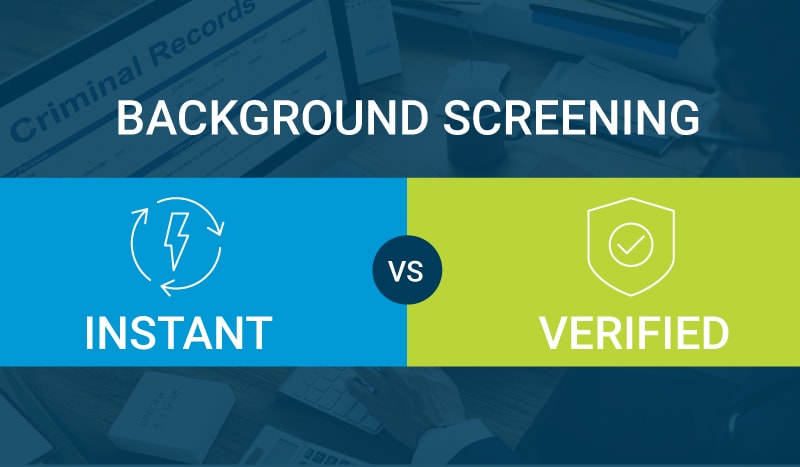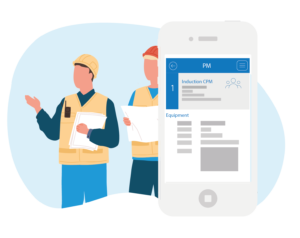Problems with false positives on tenant checks
If your multifamily property uses an instant tenant screening service, there’s no guarantee the results will be perfect. In fact, far from it.
When you use a service like this, corners often get cut. As such, you could encounter a false positive.
While these might seem like minor problems on the surface (especially in one-off instances), you have to face a harsh reality.
False positives on tenant background checks actually have several serious implications – for your profit margin and for the safety of your tenants.
A false positive could mean you:
- Turn away a high-quality applicant.
- Fall prey to a renter scam, subsequently losing money.
- Create a compliance issue for your property.
That doesn’t sound ideal, right? Really, false positives are best avoided.
Landlord tenant checks should always be as comprehensive and detailed… with no expense spared.

What is a false positive on a tenant check?
A “false positive” happens when your tenant screening service incorrectly matches an applicant to a record. This might mean their application is either incorrectly denied or approved (when it definitely shouldn’t have been).
When this happens, landlords risk bringing in a tenant who is unable to pay rent. Or, when the opposite happens and a false positive on a tenant check is produced unfairly…
There is a good chance that you could be turning away a high-quality prospect. Instances like these could result in your property failing to comply with the Fair Housing Act.
What a disaster.
A recent court ruling found that fair housing laws are applicable to all screening services, and, in some cases, the provider “did not go far enough in preventing the disparity impact on housing”.
In these instances, you’ll be the one to pay.
What are the implications of false positives on tenant background checks?
At the end of the day, a tenant background check is like a preliminary test that informs you whether or not you should accept an application.
If an ill-intending resident is able to falsify the information they provide you with (and your screening doesn’t catch the inconsistencies) this could threaten the very health of your multifamily property business.
How?
Well, tenants like this could refuse to listen to any of the rules you lay down. Some may:
- Smoke indoors and reduce the air quality for their neighbours.
- Play loud music after hours and disrupt your community.
- Damage your furniture deliberately and make complaints.
Others might simply refuse to pay any rent despite the numerous tenant payment processes you have in place.
Either way, you might experience damage to your reputation – or find yourself always chasing late payments. Soon, you’ll unhappily discover that evictions are expensive and complicated processes.
Therefore, it’s in your best interest to get it right the first time around. Tenant background checks should always be multi-layered, involving a variety of different sources. This way, you reduce the risk of false positives.
At the end of the day, any service that promises you “instant results” isn’t going to be doing an appropriate level of research on your applications.
How can you prevent false positives on tenant checks?
One of the preliminary ways to avoid false positives and compliance issues on tenant checks is to ensure that you are as comprehensive as possible with your approach.
Ideally:
- All information would be cross-referenced and double-checked.
- References would be conducted.
- You’d have clear criteria to follow (that are within the bounds of applicable laws).
- You’d only use a trusted and reputed screening service.
The perfect tenant background check would measure the data you have provided, identify the matching logic, and align information with the factors you’ve chosen.
Be careful, though. As laws change, these services will need to be monitored and kept up to date.
As recent history has shown, there are laws and offences that are being decriminalized as time goes on, and the screening logic must be adapted to fit those changes.
It’s important, then, to have a comprehensive understanding of the current guidelines of your tenant background check service. Knowing the “ins” and “outs” of their process (and how it lines up with all applicable fair housing laws) can:
- Protect your residential property from legal trouble.
- Give you confidence that your service is accurate when you do deny an applicant.
If the guidelines you use are out of date, then it’s the responsibility of the multifamily property manager to implement new ones.
The process of setting new guidelines might take time, but it’s important that you set detailed rules for your landlord-tenant checks that are aligned with the latest local laws and standards.
For example, establishing broad, blanket rules for your tenant screening process, such as denying all applicants with a criminal history, goes against HUD guidelines.
How can tenant screening software help?
Screening providers have a responsibility to equip property managers with the accurate and extensive services they need to avoid false positives by setting up a tenant background check process that works best for their property.
At MRI Software, we publish frequent compliance reviews for our clients. Why?
So they can manage the factors that contribute to their screening processes and get a clearer view of things that might need to be adjusted. As a result, they can stay follow their local laws, such as conducting the required tenant checks in Australia, and protect the survivability of their company.
False positives on tenant checks – FAQs
Let’s face it. Making decisions based off inaccurate information is never going to produce good results.
False positives on tenant checks could be detrimental to the profitability of your business, and even put you in legal trouble. For help avoiding such situations, check out these helpful FAQs.
Property Management Software
Multi-discipline technology for property owners, investors and occupiers.
Get a demo

Accurate tenant checks from MRI Software
As a screening provider, our MRI Software team has a comprehensive knowledge of the law.
We know which things aren’t supposed to be considered when establishing screening guidelines, including rules that are only applicable in certain states.
Implementing the right tools (such as property management software) and outlining clear tenant background check criteria are vital to your multifamily property.
Unless you want to risk accepting low-quality tenants and find yourself struggling to recover from bad debts, be sure to put proper onboarding protocols into place.
Instant Results Aren’t Always the Right Results
Learn how MRI Software’s Resident Screening service can help you manage risk for your multifamily property.

